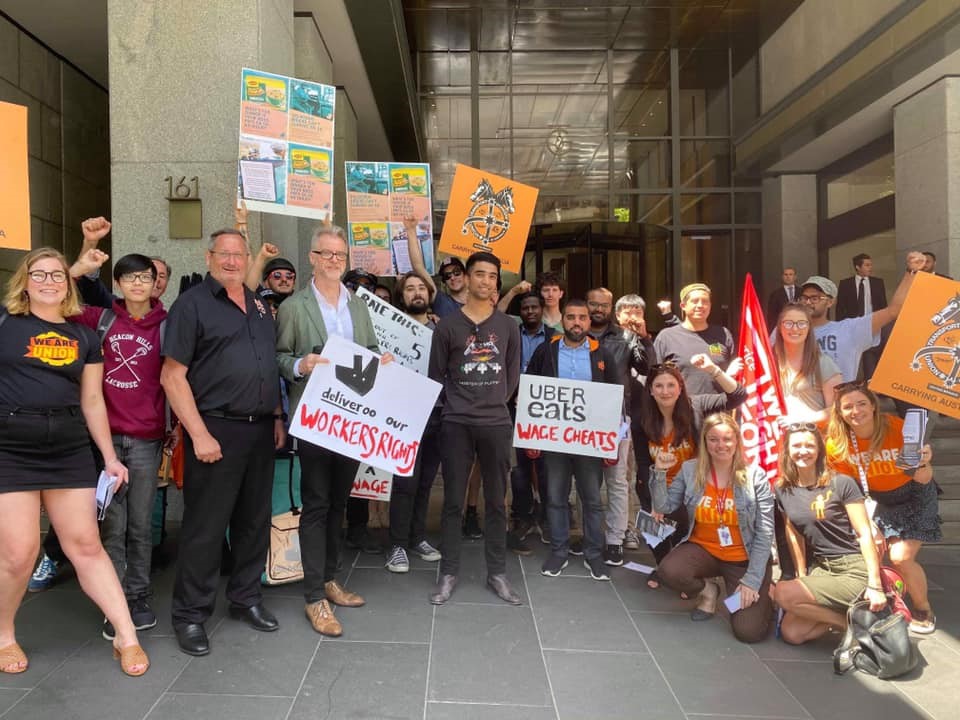Inflation hits Interest Rate Relief: The Crisis Grows!
Written by: John G. on 13 May 2024
Fruit & Veg prices not rewarding farmers. Source: publicdomainpictures.net CCO
Price inflation increased from October to March by 1.6% . That was after a drop in the previous 6 months which had government ministers and economists cheering and carrying on about a series of interest rate cuts coming right up.
On 7 May, the Reserve Bank swept those hopes aside and locked in the current rate, way higher interest rates than any in the last decade. Now talk is of a possible interest rate increase.
Price inflation increases have killed off hopes about imminent interest rate cuts and cast a shadow after over the whole country’s economic prospects.
Economists have commented how disastrous it is to have unemployment low at 3.8% while price inflation kicks up.
For them, “restoring economic activity” relies on unemployment being pushed up to 5%. That’s an extra 200,000 plus people thrown out of work.
They are disappointed just 7,000 more people were without work in March. In that month, total hours worked across the nation increased by as much as it had over the previous 11 months.
With price inflation growing and people not being put out of work in large numbers, capitalists and their top managers, top bureaucrats, bankers and government administrators set out for people to suffer much more misery.
Policy tensions reflect different corporate monopolies interests
There are tensions within corporate monopolies’ ranks between their economic needs and their political needs, as well as conflicts between different sectional interests.
The economic needs are for people to be put through hardships, businesses closing, bankruptcies, people unable to get what we want to live, being paid less and consuming less. The political needs are what people will tolerate without a significant turn against the corporate monopolies rule.
All sorts of differences flare up between financial corporations and bankers, consumer goods suppliers, mining monopolies, industrial manufacturers supplying different industries, and small and medium hospitality businesses. The businesses selling to consumers tend to support consumers being supported to keep business sales up. Others insulated from the consumer market like the mining monopolies and foreign bankers back severe cutbacks.
Different corporate approaches expressed in the parliamentary slanging match over spending.
Labor has been spreading a range of support around: electricity bill reductions, heavily subsidised childcare, increases to wages in aged care, providing free Vocational education for some careers , tax cuts extended to the poorer paid, childcare subsidies, rent assistance and payments that cut energy bills before they went to households, increases to bulk billing rebates, reduced costs of pharmacy scripts, an increase in jobseeker payments , rent assistance up 15%, increased single parent payment and expanded eligibility, opening up restrictions on wage struggles for a few workers, and more. It’s a significant spending program on services and support for people in difficulty.
It is nowhere near dealing with economic problems people face. Labor’s balancing act tries to smooth out some of the harsher effects of the crisis, and stave of tendencies for the troubles to break people’s acceptance of capitalism. They work on the monopolies’ economic needs while paying attention to political needs. Hardship, but trying to hold it to a level where lots of people won’t be rethinking the need to rebel and try to make the rich corporate monopolies pay.
Chalmers dubs his a ‘no scorched earth austerity’ policy. He presents himself ‘dealing with inflation’ while ‘supporting the economy’. Labor’s juggling defends the corporate monopolies by letting people’s consumption drop and hardships stalk the workers, making people pay to get out of the corporates’ inflation crisis while doing a bit to mitigate the worst effects.
Liberals ‘Cut Government spending policy’ for mining, finance and other corporates
The Liberals carry on about ending the ‘spend-a-thon’. They say they would ‘contain the growth in spending’ … to ‘take pressure off this homegrown inflation’ as Shadow Treasurer Angus Taylor put it after the recent Reserve Bank meeting put interest rates on hold.
Taylor nominated cutting $209 billion he reckoned was increased spending since Labor’s election. While the Liberals are coy about details of what they would do, they are calling for cuts in spending programs on a variety of government services and support for people.
It’s the severe policy of the corporates of mining, banking and finance; increasing the harshness of the squeeze on people. It’s not quite the ‘scorched earth’ criticized by Chalmers, but it is policy for a disaster to be imposed on people doing it hard now, more out of work, holding back wage rises, while slashing services and supports Labor has put in place easing the harshest troubles hitting people.
Liberal’s approach: Devil Take the Hindmost
The Liberal’s and monopolies’ make a cynical and brutal calculation. They reckon better off sections of workers can tighten the belt for a while They work for the better off to turn a blind eye to the plight of poorer workers and non-monopoly business people most affected by recession, loss of consumer markets, government supports and services. The Libs work to bring workers and professionals in industries like mining, shipping and transport, banking and finance in support of the reactionary corporate monopolies’ approach.
The Liberals try to drag working people in mortgage trouble into the reactionary corporates’ orbit too. They push harsher measures as the path to reduce the time high interest rates torment mortgage holders in trouble. They try to use it as an appeal to outer suburban workers and tradies to back mining, finance and wider foreign monopoly corporates’ interests rather than stand for the workers’ own interests in a better life.
Insecure, casual and ABN employees cop the brunt of unemployment and hardships. The bottom 25% are crushed. The young are particularly affected by insecure work, shift cuts, high rents and interest rates. Small and medium businesses providing people’s goods and services and subbies in all sorts of industries lose customers and work. People with mortgages and renting cop even higher rates.
For the bulk of people, the Liberals promise a hell of a lot less ‘economic activity’, a brutal devastation of many people’s lives and the futures of today’s generation of students in their later years looking to get into good paying jobs.
The Greens perform around the edges of government administration, raising banners for more housing, caps on rents and interest rates. They float various schemes. They perform and act to advocate for Labor to improve its game. Labor does fall short and bumbles on various fronts. The Greens aren’t going to have a decisive say in parliament any time soon. Their policies attach themselves to consumer market interests. They stand against the reactionary corporate interests of mining monopolies, finance and banking corporates.
Labor and Liberal are wrangling about which way to make capitalism work and get back to profitability, while keeping corporate monopoly rule over the country secure. That’s no real use to workers.
This system is failing us. It can’t keep going without periodic crashes where the corporate monopolies make working people and small business suffer to prop up their system and get it back to turning over.
Now is a time to get serious about getting organised to get rid of the dominating US corporate monopolies’ rule over the nation and free the nation and the working class. Standing out as some initial steps to defend poor workers and start to develop organisation for workers to take command:
First: Organise poorer workers and younger people to stand against severe policies to make poor workers pay for the corporate monopolies’ crisis. Better pay, cheaper rent, lower interest rates, better government support and services, tax the corporate monopolies to relieve peoples’ hardships.
Second: Win better-off workers, professionals and small business people to stand with poorer workers against policies of leaving people subject to severe hardship.
Third: Reject Liberal/Coalition policies to stop spending to relieve people of some effects of price inflation and high interest rates, while they also work to impose real wage cuts and much higher unemployment. No severe economic shock to get big monopolies out of trouble.
Print Version - new window Email article
-----
Go back
Independence from Imperialism
People's Rights & Liberties
Community and Environment
Marxism Today
International
Articles
| Drought |
| Book Review: Terraglossia |
| Residential aged care - for people's needs or private profit? |
| The challenge of environmentalism in modern Australia |
| Fleurieu Peninsula marine deaths a sign of global warming’s existential dangers |
| Palestinian cultural day in SA |
| Federal government breaks critical environmental promise |
| Book Review: Mood Machine The rise of Spotify and the costs of the perfect Playlist |
| Albanese to weaken environment laws for foreign salmon farmers |
| Listen to people so as to improve mass work |
| The cars that ate suburban streets |
| Woolworths and Coles face working-class backlash |
| Book Review: Juice, by Tim Winton |
| People's Health and Safety More Important Than Nuclear Power |
| New Government Housing Scheme - Does It Create Affordable Housing? |
| US Capital Eyeing Rented Apartment Market |
| American mining giant destroys Australia’s native forests |
| The financial black hole that is AUKUS |
| Nullarbor Plain Environment Threatened By Proposed "Green" Hydrogen Energy Hub |
| Out for International Environmental Day of Action: November 16, 2024 |
-----


